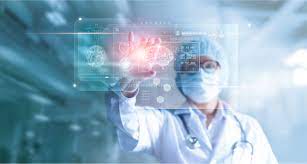The Impact of Medical Technology
In recent years, advancements in medical technology have transformed the landscape of healthcare, leading to significant improvements in global health outcomes. From innovative treatments to cutting-edge diagnostic tools, medical technology has revolutionized the way diseases are diagnosed, treated, and prevented, ultimately saving lives and improving quality of life for millions around the world.
The Evolution of Medical Technology
1. Diagnostic Imaging
- X-Ray and CT Scans: These imaging techniques have become indispensable tools for diagnosing a wide range of medical conditions, from fractures to tumors, allowing for early detection and treatment.
- MRI and PET Scans: MRI and PET scans provide detailed images of the body’s internal structures and metabolic processes, aiding in the diagnosis and monitoring of diseases such as cancer, neurological disorders, and cardiovascular diseases.
2. Minimally Invasive Surgery
- Laparoscopy and Robotic Surgery: Minimally invasive surgical techniques, such as laparoscopy and robotic surgery, offer patients shorter recovery times, less pain, and reduced risk of complications compared to traditional open surgery.
- Endoscopy: Endoscopic procedures allow physicians to visualize and treat conditions within the body using a flexible tube with a camera and light source, avoiding the need for invasive surgery.
3. Telemedicine and Remote Monitoring
- Teleconsultation: Telemedicine enables patients to consult with healthcare providers remotely, improving access to medical care, especially in rural or underserved areas.
- Remote Monitoring Devices: Wearable devices and mobile apps allow patients to monitor their health parameters, such as heart rate, blood pressure, and glucose levels, empowering them to take proactive steps to manage their health.
The Impact on Global Health
Advancements in medical technology have had a profound impact on global health, contributing to:
- Reduced Mortality Rates: Improved diagnostic tools and treatments have led to reductions in mortality rates for various diseases, including cancer, cardiovascular diseases, and infectious diseases.
- Increased Life Expectancy: The combination of early detection, better treatments, and preventive measures has resulted in longer life expectancy and improved quality of life for populations worldwide.
- Healthcare Access: Medical technology has expanded access to healthcare services, particularly in low-resource settings, where traditional healthcare infrastructure may be lacking.
Challenges and Opportunities
While the benefits of medical technology are undeniable, challenges remain, including:
- Cost: Many advanced medical technologies come with high costs, limiting access for underserved populations.
- Ethical Concerns: Ethical considerations surrounding the use of medical technology, such as data privacy and patient autonomy, need to be addressed.
- Health Inequities: Disparities in access to medical technology and healthcare services persist, exacerbating health inequities within and between countries.
Embracing Innovation for Better Health
As we continue to witness rapid advancements in medical technology, it is essential to harness these innovations responsibly to ensure equitable access to healthcare for all. By addressing challenges and leveraging opportunities, we can usher in a new era of healthcare that prioritizes prevention, personalized treatment, and improved health outcomes for individuals and communities worldwide.




